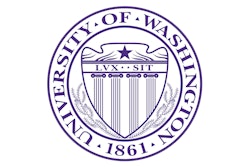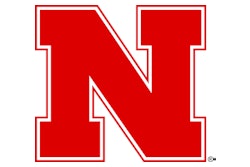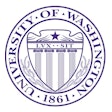Copyright 2018 Orange County Register
All Rights Reserved
Orange County Register (California)
Members of a Congressional subcommittee expressed outrage and frustration Wednesday at the continued inability of the U.S. Olympic Committee, the Center for Safe Sport and top national sports governing bodies to effectively address sexual abuse within the American Olympic movement and accused USA Gymnastics of covering up sexual abuse by Olympic and national team physician Larry Nassar.
A more than 21/2-hour and often heated hearing by the Oversight and Investigations subcommittee of the House Energy and Commerce committee repeatedly highlighted seven years of missteps by the USOC in setting up the Center for Safe Sport and exposed misplaced priorities and a lack of transparency and commitment by the USOC, USA Gymnastics, USA Swimming and other NGBs in dealing with sexual abuse in American Olympic sports.
"There appears to be a history of the USOC knowing of allegations of sexual abuse and doing nothing," said Rep. Greg Walden, R-Ore.
While top executives for the USOC, USA Swimming, USA Gymnastics, USA Volleyball and USA Taekwondo apologized during the hearing for their organizations' mistakes in dealing with sexual abuse, members of the sub-committee repeatedly expressed skepticism and frustration at several of the executives' inability to detail the extent of sexual abuse within their sports or outline clear plans to tackle the problem 21 months since allegations of Nassar's sexual abuse first became public.
At one point Rep. Buddy Carter, R-Ga., demanded acting USOC Chief Executive Susanne Lyons resign.
In particular, committee members complained that seven years after the USOC-created Center for Safe Sport was first recommended by a USOC task force, the center remains underfunded and understaffed.
"Honestly, I'm not reassured by your testimony because I don't hear a sense of urgency," said Rep. Debbie Dingell, D-Mich., whose constituents included some of Nassar's victims whom he abused at the Michigan State University sports medicine clinic and local gymnastics clubs. "I keep hearing, 'Well, we're going to do it, we're going to get to this, we're going to do it.' What is out there to (protect young athletes)?"
Subcommittee members charged that the USOC and national governing bodiescontinue to make Olympic success and protecting the Olympic brand a priority over protecting young athletes.
A USOC commissioned audit released in October 2017 found that 43 of 48 national governing bodies for Olympic sports, as well as the USOC, had deficiencies in safe sport policies and procedures.
"One of the concerns that the committee has heard repeatedly from survivors is that the USOC is more concerned about its own reputation, about medals and money than it is about athlete safety," Walden said.
Just last month, a USOC policy document listed "the effect on the USOC's reputation" as one of six items a review panel will consider in ruling on a sexual abuse complaint and imposing sanctions.
"I'll have to admit to not having seen that before and I have to say it does not belong on that list," said Lyons after a long pause when questioned by Walden about the April document.
USOC documents from 2011 and 2017 had similar references,Walden said.
Lyons replaced longtime USOC CEO Scott Blackmun, who was forced out earlier this year amid widespread outrage within the American Olympic community over what former Olympic medalists and other critics describe as a lack of leadership, commitment and transparency by the USOC in the midst of the biggest sexual abuse scandal in American sports history.
"There were warning signs about sexual misconduct in amateur sports for decades and yet the systems that were supposed to protect our athletes failed," said Rep. Diana DeGette, D-Colo.
Lyons described organizations within the American Olympic movement and their sexual abuse policies as "unresponsive, needlessly complex, fraught with risks ... appalling and unacceptable."
"The Olympic community failed the people it was supposed to protect," she said.
USOC officials in the past have maintained they were limited in what they could do about sexual abuse cases by the Stevens Amateur Sports Act. As recently as 2016, a USOC attorney said in a deposition the organization didn't have jurisdiction in cases involving sexual abuse in U.S. Olympics sports.
"What precisely is the authority of the USOC when it comes to protecting athletes?" Walden asked.
"I think the act gives us much broader authority than we've exercised in the past," Lyons said.
Much of the hearing focused on USA Gymnastics' handling of the Nassar case and the launching and effectiveness of the Center for Safe Sport. Dozens of civil suits allege that Nassar sexually abused more than 250 gymnasts and young female athletes.
"At the very least there was a cover-up, things weren't transparent or clear and I think that added to the frustration of athletes, parents and the general public as well," Rep. Tim Walberg, R-Mich., said of USA Gymnastics' role in the Nassar scandal.
The hearing was the first major public appearance by USA Gymnastics CEO Kerry Perry, who was hired in December to replace Steve Penny, who was forced out after the USOC demanded his removal.
Perry has been widely criticized by former Olympians and U.S. national team members for making marketing and sponsorship deals a priority over transparency and forming and implementing effective plans to tackle sexual abuse.
Perry, who was prepped for the hearing by former prosecutor Deborah J. Daniels, tried to stick to scripted talking points during the hearing and at times was even self-congratulatory, but stumbled when questioned about several major issues.
When asked by Rep. Joe Barton, R-Texas, why USA Gymnastics had not provided the panel with an aggregate number of sexual abuse complaints it has received, Perry said, "Unfortunately, what I've discovered is there wasn't a lot of great data. I can't answer to that."
"Miss Perry, I'm glad that you're here today, but a lot of people have been wanting to hear from you since you took a job," Dingell said. "You've got to be transparent with everybody."
The Center for Safe Sport was first recommended by a USOC working group in 2010. The center was approved by the USOC in 2014 but didn't open until March 2017.
In its 14 months of operation, the center has received 500 reports and inquires. A year ago the center received 20-30 complaints a month, center CEO and president Shellie Pfohl said.
"Now it's 20 to 30 a week," she said.
The center has a $4.6 million budget, with the USOC pledging to increase its annual support to $3.1 million. The center has five full-time investigators, with an additional seven external investigators under contract.
Read More of Today's AB Headlines
Subscribe to Our Daily E-Newsletter
Terms and Conditions Privacy Policy































